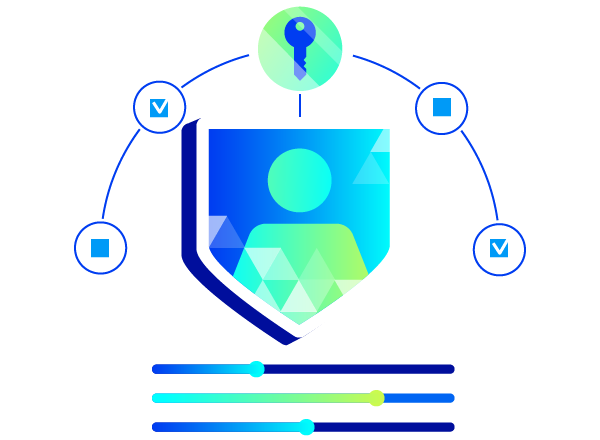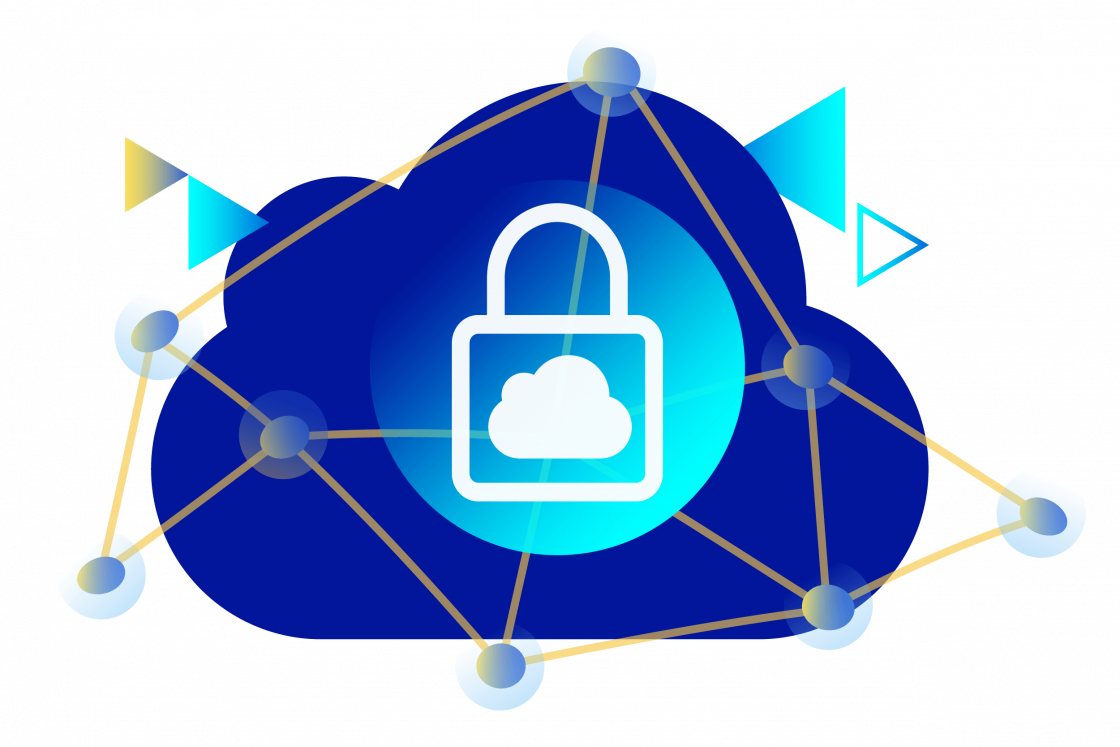What is Confidential Computing?
Confidential computing is a revolutionary approach to data security that protects information in use. While traditional security methods focus on protecting information at rest (stored) and in transit (being moved), confidential computing addresses the critical vulnerability of data while it's being processed.
This is achieved by creating a secure, isolated CPU environment called a Trusted Execution Environment (TEE) within a computer's processor, where information and computations can be performed without being exposed to the rest of the system, even the operating system or hypervisor.

Specialised storage areas within TEEs provide stronger isolation and protection for highly sensitive information and operations. Advanced cryptographic techniques guard data at rest, in transit, and within TEEs.
Finally, attestation is a process that verifies the integrity and trustworthiness of a TEE and its associated software in a public cloud and a virtual machine with a hypervisor.
Why Confidential Computing is Important
Confidential computing adds a critical layer of storage protection against unauthorised access and data breaches. Isolating information within TEEs significantly reduces the risk of exposure, even in the event of system compromises or insider threats.
Furthermore, it is ideal for safeguarding personally identifiable information (PII), financial information, healthcare records, intellectual property, and other highly sensitive information. It allows organisations to process and analyse this data without compromising its confidentiality.
It also builds trust in online services and information processing by ensuring the confidentiality of information.
These principles address a fundamental challenge in data security by protecting data at its most vulnerable state—when it is being processed. By leveraging advanced technologies and hardware isolation, they provide a robust solution for companies dealing with sensitive data in various industries.
How Confidential Computing Works
Confidential computing leverages specialised hardware and software technologies to create a secure environment for processing sensitive data. At its core, it relies on TEEs and protected enclaves.
Trusted Execution Environments (TEEs)
TEEs are isolated areas within a CPU that provide a safe space for executing code and data. They utilise hardware isolation and encryption to guard the confidentiality and integrity of the information processed within them.
TEEs ensure that private information and computations remain confidential even from the operating system, hypervisor, and other software running on the same machine.
Secure Enclaves
Secure enclaves are specialised areas within TEEs that provide even stronger isolation and protection. They are specifically designed for handling highly sensitive data and operations and offer additional security measures like secure boot and remote attestation.
Enclaves enable apps to perform computations and retrieve confidential data without the risk of exposure to unauthorised entities. The process typically involves:
- Application isolation: Sensitive applications and private information are moved into the TEE or enclave.
- Protected execution: The application and information are processed within the isolated environment, protected by hardware encryption and control mechanisms.
- Attestation: The TEE or safe enclave can generate cryptographic evidence (attestation) to prove its integrity and trustworthiness to external entities.
- Protected output: The computation results are returned to the application or user in a secure manner.
Confidential computing combines hardware-based isolation and encryption to ensure that sensitive information remains protected throughout its lifecycle, even while it's being processed. This approach significantly enhances private information security and enables organisations to confidently learn to perform sensitive operations.
The Confidential Computing Consortium
The Confidential Computing Consortium is a collaborative initiative dedicated to accelerating the adoption of confidential computing technologies across various industries. It brings together leading technology companies, cloud providers, hardware manufacturers, and academic institutions to foster innovation and establish industry standards.
This consortium plays a vital role in driving the growth and maturity of confidential computing. Fostering collaboration and establishing industry standards helps ensure that confidential computing solutions are widely accessible, secure, and reliable. This collective effort paves the way for a future where organisations can harness the power of information while maintaining the highest levels of confidentiality and trust.
Applications of Confidential Computing
Confidential computing has far-reaching implications across various sectors, revolutionising how sensitive private information is handled and processed. Here's a glimpse into some of its key applications:
- Securing transactions and data: Confidential computing can guard sensitive financial information during transactions, risk assessments, and fraud detection, ensuring data confidentiality and integrity.
- Protecting patient data: It allows safe processing and sharing of patient records, enabling advancements in medical research and personalised treatments while safeguarding patient privacy.
- Ensuring confidentiality in communications: This style of computing can protect classified information and secure communication channels, enhancing national security and safeguarding government information.
- Enhancing online security: Confidential computing addresses concerns about privacy and security on the Internet by providing an additional layer of protection for private information processed in online environments.
These are just a few examples of how confidential computing is transforming industries. Its ability to protect information opens up new possibilities for secure collaboration, information sharing, and innovation across various sectors.
As the technology continues to learn, we expect even more groundbreaking applications to emerge, further solidifying its position as a cornerstone of modern security.
Benefits of Confidential Computing
Confidential computing offers a multitude of benefits that extend beyond traditional security measures, even on a dedicated server. It fosters trust and enables innovation across various domains.
- Improved data privacy: Confidential computing significantly enhances data privacy by protecting private information throughout its lifecycle. Isolating data within safe enclaves minimises the risk of unauthorised access and data breaches, ensuring that sensitive information remains confidential even in the event of system compromises.
- Enhanced compliance: It aids organisations in meeting stringent regulatory requirements and compliance standards. Ensuring the confidentiality and integrity of private information helps organisations adhere to data protection regulations such as GDPR, HIPAA, and others.
- Greater trust in online solutions: This method also addresses concerns about data privacy and security in the cloud. Providing strong assurances about data protection increases trust in online solutions and encourages organisations to leverage the benefits of cloud computing without compromising information.
These benefits highlight the transformative potential of confidential computing, even in a hybrid cloud. Safe data processing and collaboration empowers companies to innovate, leverage data-driven insights, and build trust in an increasingly data-centric world.
How Does Confidential Computing Protect Data?
Confidential computing safeguards data by employing a multi-layered approach that combines hardware-based isolation, encryption, and attestation.
Sensitive data and computations are performed within secure enclaves or Trusted Execution Environments (TEEs), which are isolated from the rest of the system, including the operating system and hypervisor. This ensures that even if the underlying system is compromised, the data within the shield remains protected.
Data within the secure shield is encrypted at rest and in use, adding an extra protection against unauthorised access. Even if someone gains physical hardware control, the encrypted data remains unreadable without the proper decryption keys.
These platforms can provide cryptographic proof (attestation) of the integrity and trustworthiness of the secure environment. This allows external entities to verify that the data is processed in a secure and tamper-proof environment.
Confidential Computing and the Regulatory Environment
Confidential computing has emerged as a valuable tool for companies in the artificial intelligence age, navigating the complex landscape of protection regulations. Ensuring the confidentiality and integrity of data, even during processing, helps organisations comply with stringent requirements and avoid costly penalties.
It aligns with core principles of data protection regulations, such as the General Data Protection Regulation (GDPR), by minimising the risk of unauthorised access and breaches.
Isolating private data within secure enclaves reduces the attack surface and enhances overall security. Many regulations, such as the GDPR and various data localisation laws, mandate that certain data types must be stored and processed within specific geographic regions.
Confidential computing enables companies to comply with these requirements by ensuring that it remains protected even when processed in online or shared infrastructure – and for machine learning applications.
Regulations often require secure data sharing and collaboration between organisations. It enables multiple parties to work with private information while preserving confidentiality and facilitating compliance with data sharing and collaboration regulations.
Confidential computing platforms often provide tools and capabilities for logging and auditing access and processing activities within secure enclaves. This helps organisations demonstrate compliance with regulations by providing evidence of data protection measures.
By incorporating these principles into their protection strategies, companies can proactively address regulatory requirements and mitigate risks associated with breaches and non-compliance. This helps avoid financial penalties and fosters trust among customers and stakeholders, demonstrating a commitment to privacy and security.
How Can My Business Implement Confidential Computing?
Implementing this security-first method of thinking involves a few key steps:
- Identify sensitive workloads: Determine which apps require the highest level of protection and would benefit from confidential computing.
- Evaluate confidential computing solutions: Research and select the appropriate platform or solution that meets your specific needs and requirements.
- Adapt applications: Modify your apps or leverage tools and frameworks that support them to ensure compatibility with protected enclaves.
- Deploy and manage: Deploy your solution and establish appropriate management and monitoring processes to ensure ongoing security and performance.
OVHcloud and Confidential Computing

Confidential computing on OVHcloud's Bare Metal servers ensures protection during processing, which is critical for sensitive sectors. It boosts productivity through cost efficiency and high availability, aligning with business needs – by offering confidential computing on bare metal.

OVHcloud IAM streamlines your access management and boosts your productivity. It lets you securely manage users, applications, and their permissions across all your services from a single, centralised interface, strengthening your security posture.

Finally, OVHcloud's Network Security solutions safeguard your business from cyber threats, ensuring uninterrupted services. With multi-layered protection for infrastructure, applications, and web services, OVHcloud's global network has a proven track record against large-scale attacks, allowing you to focus on your core business while relying on a virtual server at OVHcloud.